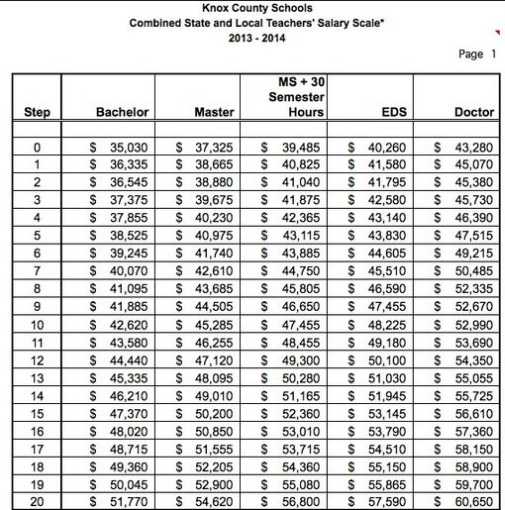Ideally, most people (like myself currently) going through college to become a teacher or educator are doing so out of personal passion and interest towards the field of education or a desire to help achieve academic growth with their future students. None of us, I believe, would do the jobs we hope to achieve without being paid for our work, however, nor would anyone doing any other kind of labor. Thus, salaries for teachers is a crucial issue when looking to improve or work with any kind of developments in the educational world, as these yearly earnings are what help potentially retain and improve a teacher work force. In times where educating the country's youth continues to be an important political debate, and where post-covid labor shortages persist, being aware of the state of teaching salaries is of great importance.
 |
Knox county's teacher pay rates (2013-14),
with new teachers with a four-year degree
only making $35,000 a year, and at most
making $51k after 20 years. |
I myself wanted to go into teaching because I had a real passion for the subject of history throughout high school, and was subsequently inspired by my various teachers with how they made the profession appear so engaging and worthwhile. On the other hand, however, I do enjoy making a decent living for my work, especially after spending four to five years in post-secondary education in order to be able to do said work. Another thing about myself is that I like to stay nearby to where I have grown up in order to be somewhat close to family and loved ones, so when looking for future employment opportunities I tend to research in places close to home. That being said, most everywhere I have looked so far, with some exceptions, have paid their teachers at a subpar rate when compared to the
national average. In my mind, increasing teacher salaries is not only doable (for instance, my home county allocates over 50% of its
budget to education), but potentially beneficial, as doing so may draw more qualified and passionate people to the historically underpaid field. While such job openings and shortages mentioned earlier may help the goal to increase these salaries, only time will tell; until then, us educators will probably continue to make do with the jobs we love.



